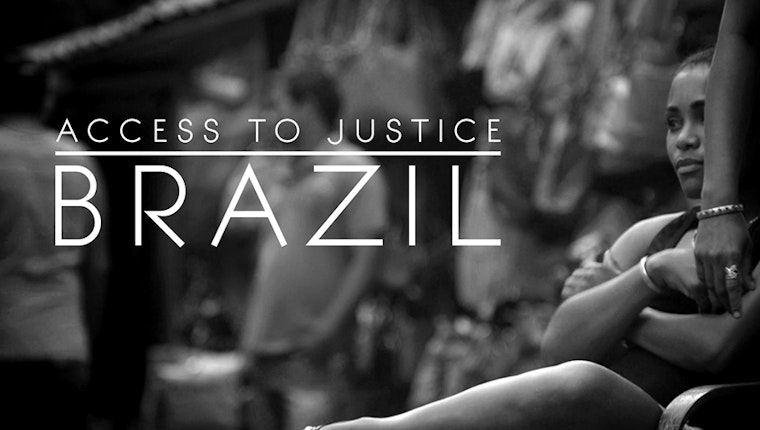Stamping Out Violence to Make Room for Growth
By Pedro Abramovay

In the past 14 years, the Millennium Development Goals have rightly provided a bold vision for poverty reduction, including an aim of halving extreme poverty rates. This particular goal was achieved in 2010. Strides have been made in reaching other targets, including nearing gender parity in primary education and improving access to drinking water.
This progress is to be lauded. But across the world, too many targets are not met due to the absence of everyday security. The full fruition of development—and an end to poverty—is inextricably tied to good governance, access to justice, and freedom from violence, targets that are currently absent from the development agenda. If we want to end poverty, the post-2015 goals must include measurable benchmarks and targets related to access to justice.
Brazil has achieved historic reductions in poverty and made major gains in social inclusion in recent years, making significant progress towards achieving the UN Millennium Development Goals. With these advances in hand, the country is now tackling outstanding challenges in the areas of access to justice, good governance, and public safety that are vital for continued progress towards sustainable development.
Brazil’s Ministry of Justice recently launched an Access to Justice Atlas, including an index that ranks and compares access to justice across the country and to different parts of the justice system. The Ministry of Justice compared the access to justice index with Brazil’s Human Development Index, finding a close relationship between the two.
Across the country, government and civil society actors are working together to tackle persistent access to justice, governance, and public safety challenges. For example, in the state of Pernambuco the Pacto pela Vida (Pact for Life), is a collaborative, comprehensive effort by government and civil society to reduce violence.
The project set an annual target of reducing homicides by at least 12 percent and identified focal points in the state with higher homicide rates. Policing, social programs, and government resources were concentrated in these focal points, combining a targeted approach to violence reduction with a more holistic effort to address factors facilitating violence. Progress was monitored weekly and diverse government institutions were encouraged to identify obstacles and work together to address them.
The program has had an astounding impact. As researchers report, “The reduction in homicide rates [in Pernambuco] reached 39 percent in the period between 2006 and 2013, with a corresponding 60 percent decrease in Recife, the state capital city.” In 2014, the murder rates increased for the first time since the program was launched in 2007—an 8.7 percent increase compared to 2013—generating significant discussion about the challenges in sustaining such gains over time and renewed commitment to continuing to make progress in reducing homicides at the start of 2015.
At the heart of Pacto pela Vida lies a model that involves community members, police, and local government services in a comprehensive effort to reduce violence. It’s a model that deserves support and attention as governments around the world struggle with similar challenges in their cities.
This success is not only about enabling public safety. It demonstrates the importance of ensuring citizens feel safe so development can move forward. It embodies the directive from the Report of the Secretary-General on legal empowerment of the poor and eradication of poverty which states, “Focusing on livelihood security, legal empowerment can effectively deliver both the ‘freedom from want’ and the ‘freedom from fear.’”
It’s time for the members of the United Nations to embody their own agreed directives to ensure everyone has access to development. By incorporating access to justice as a post-2015 goal, they can do just that.

Pedro Abramovay is vice president of Programs at the Open Society Foundations.